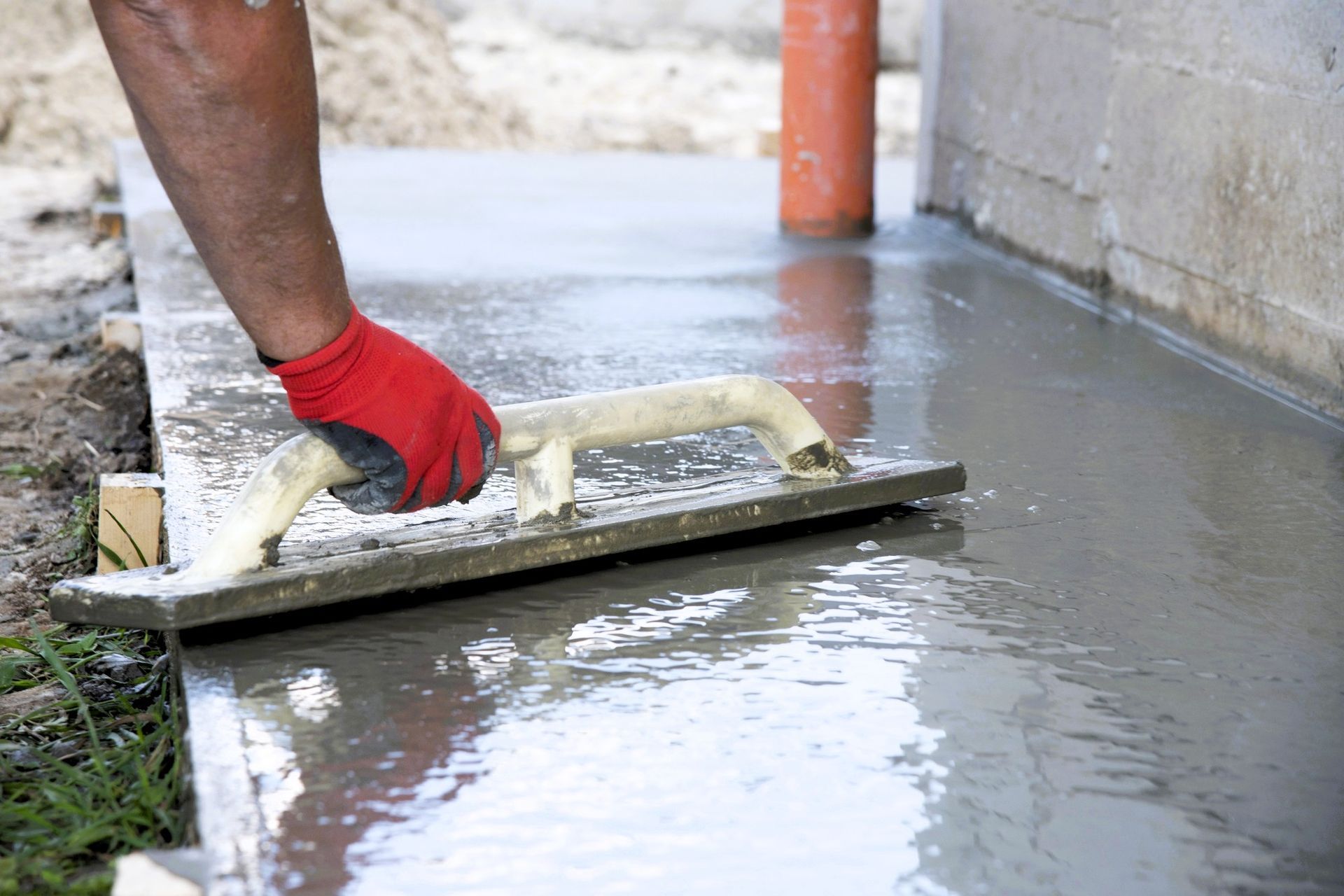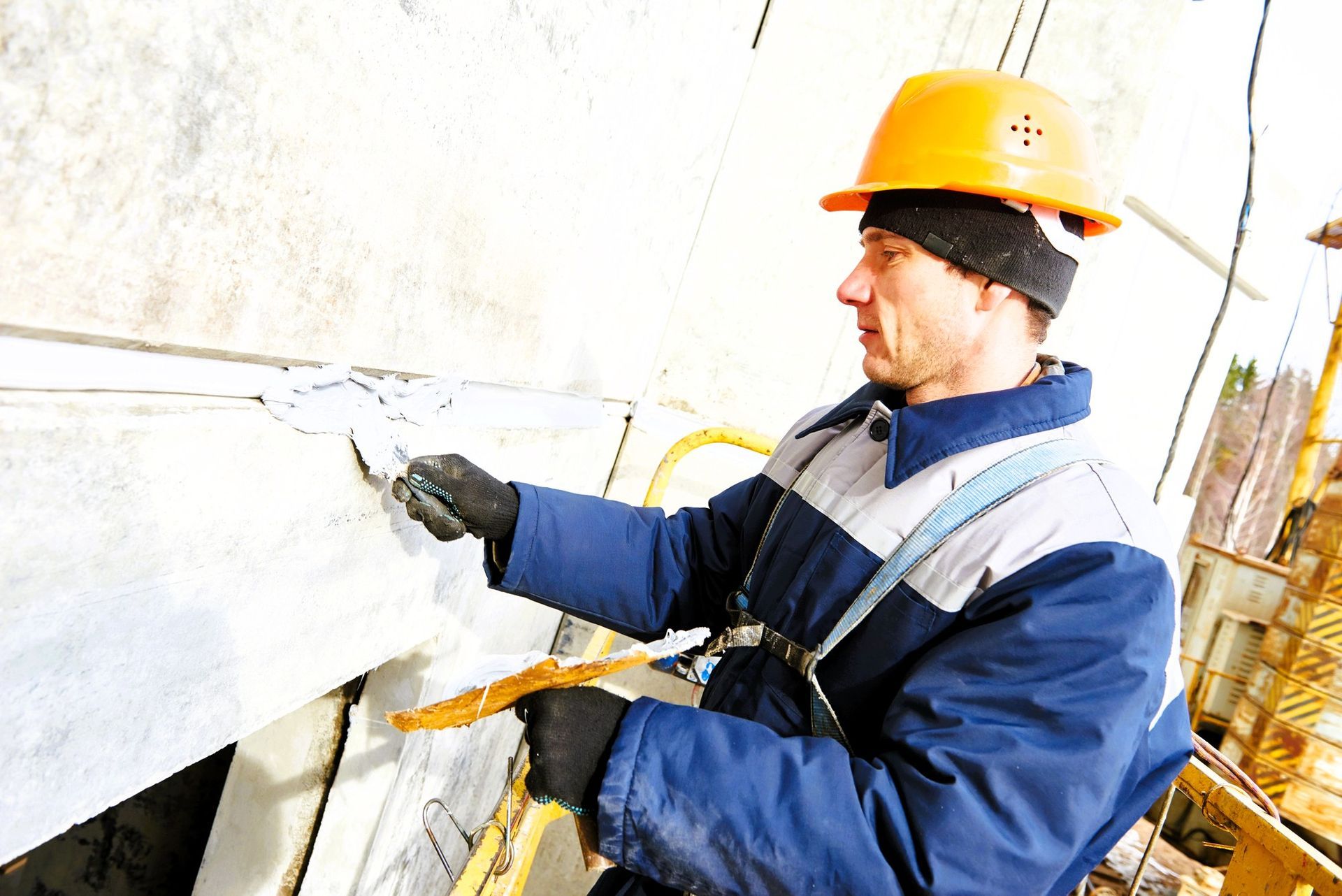Why Concrete Driveways Crack
March 2, 2021
Why is it common for concrete driveways to crack?

You may have noticed that most concrete driveways you see have at least one crack in them, sometimes more. If there is no crack, then one will probably appear at some point. That is why you see many driveways with spaces or control joints. Such joints are designed to crack as the concrete cures. However, the inclusion of joints will not prevent all cracking form occurring. This will mean having concrete repair performed to seal the cracks.
Why Does Cracking Occur?
The main reason for the cracking occurs due to the weight of the concrete itself and the base on which it is laid. The good contractors will create a base of crushed stone that is packed tightly and then an aggregate base is installed on top. Once that is complete, the concrete is poured onto the driveway. However, there are some contractors who use sand or dirt as the base which only makes it more likely that the concrete will crack.
Basically, as the earth freezes and thaws over the winter months, the material underneath the concrete will expand and contract. As this process continues, the weight of the concrete will react to the uneven conditions by cracking. While a solid, crushed rock and aggregate base will withstand expanding and contracting, it too may result in cracks forming in the concrete.
What to Do?
Since cracks are almost a given, the question becomes what to do when it cracks. If the driveway has a strong stone and aggregate base, then the concrete repair should be straightforward. This will consist of sealing the crack and waterproofing the area to prevent further damage. However, this is no guarantee that the driveway will not crack again.
• Check the reputation of the contractor, see their previous work
• Look over the contract and note the warranty or guarantee
• Ask questions about the base used and placement of joints
• Inspect the results with the contractor
It pays to check with the contractor to see what warranty or guarantee for their services is available. It’s possible that they will be obligated to carry out certain repairs depending on their warranty or guarantee they provide. Otherwise, you will have to do the work yourself or hire a company to do it for you which will cost additional money.
In many cases, there may be little you can do other than seal the crack and maintain the integrity of the driveway out of your own pocket. Once the driveway is ready, you can apply a sealant to the surface which will help keep moisture from penetrating into the concrete, but that will not stop most cracks from occurring.
Even the best of preventative techniques is no guarantee that concrete driveways will not crack. The question is whether the contractor did everything possible to prevent cracking from occurring. This may make a big difference in the concrete repair and whether the job will be paid for by the contractor who is under warranty or by you.
Grand Rapids Concrete Pros takes great pride in our attention to detail. We make sure to pour driveways
the right way, so there will be minimal chance of any cracks developing. We will also recommend any maintenance needed to further prevent cracks or other problems in the future. Give us a call for a quote on your new driveway today!
You might also like
Grand Rapids Concrete Pros Blog
Contact Us
Thank you for contacting us.
We will get back to you as soon as possible
We will get back to you as soon as possible
Oops, there was an error sending your message.
Please try again later
Please try again later
Quick & Reliable
We are available via email or phone
Location
Grand Rapids, MI
Call
616-208-5505
We serve Grand Rapids and the surrounding areas including:
Walker
Plainfield
Comstock Park
© 2025
Grand Rapids Concrete Pros
Disclaimer: This site is a free service to assist homeowners in connecting with local service contractors. All contractors are independent and this site does not warrant or guarantee any work performed. It is the responsibility of the homeowner to verify that the hired contractor furnishes the necessary license and insurance required for the work being performed. All persons depicted in a photo or video are actors or models and not contractors listed on this site.





